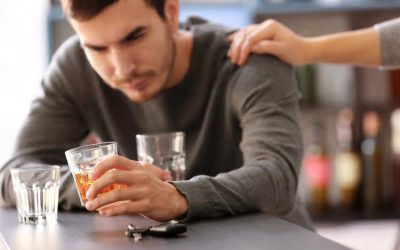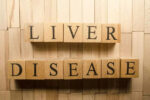Antibiotics and alcohol
Contents
Polysubstance abuse is common, and these drug users are clinically classified as having multiple comorbid substance disorders. Because withdrawal from multiple substances is more complicated than one, inpatient medical detox is generally recommended. The goal of treatment is to restore some or all normal liver functioning by addressing the underlying issue ofmixing prescription drugs with alcohol.

While consuming Zyvox, alcoholic beverages could cause your blood pressure to increase dangerously. Many people who drink alcohol while taking antibiotics experience stomach or digestive side effects, as well as an increased feeling of nausea. Aside from gastrointestinal issues, both alcohol and antibiotics can impair cognitive function, concentration, what is a halfway house and coordination. These drugs block one of the major pathways that metabolise alcohol and cause a rapid build up of nasties called acetaldehydes, which are responsible for many of the unpleasant physical effects of hangovers. With these drugs on board, you can be red-faced, fainting and vomiting after as little as one glass of beer.
If you’re taking isoniazid for months at a time to treat a serious infection like tuberculosis, talk to your healthcare provider about if or when it might be safe for you to drink alcohol again. To avoid this reaction, don’t drink alcoholic beverages for at least two weeks after you stop taking linezolid. Given the biologic plausibility, it would be prudent to avoid alcohol with pyrazinamide. Historically, ethionamide was believed to cause hepatotoxicity with alcohol consumption. Though the literature is limited, mild liver disease and alcohol use are not an absolute contraindication, with appropriate monitoring.
How Alcohol Interacts with Antibiotics?
You may be prescribed medication to ease the withdrawal symptoms and manage the cravings. After detox, you may enroll in a residential or outpatient treatment program. To be on the safe side, don’t drink alcohol while you’re taking isoniazid or ketoconazole.
Even a single episode of binge drinking can have measurable results on the immune system, from within the first 20 minutes to several hours after alcohol ingestion. If you experience any of the above Bactrim side effects while taking the antibiotic, contact your healthcare provider. It is important to tell your healthcare provider about all medications you are taking, as well as any allergies you have, to help prevent potential interactions or allergic reactions. In general, you should avoid consuming alcohol while taking Bactrim. Potentially harmful side effects can occur with Bactrim and alcohol disulfiram reaction.
How Does Alcohol Interacts With Antibiotics?
But keep in mind that we were talking about antibiotics and periodic use of alcohol, not drinking to excess or alcoholism. The effects of alcoholism can have much more profound, lasting effects on your immune system and your liver, especially when using antibiotics, too. If the potential disulfiram reaction wasn’t bad enough, if you have impaired liver function or a known folate deficiency, Bactrim needs to be taken cautiously and should not be combined with alcohol. Chronic alcohol consumption can cause folate deficiency and Bactrim in addition could exacerbate this condition. One case report details a severe psychiatric reaction requiring hospital admission in a patient with heavy alcohol consumption on combination therapy with isoniazid, streptomycin, and ethionamide .
How to sober up immediately?
- Drink Coffee. Drinking a strong black coffee is sometimes suggested by helpful friends as a means of 'sobering up'.
- Take a cold shower. Standing under some cold water will shock your body into sobering up.
- Eat.
- Sleep.
- Exercise.
Meth is one of the most addictive drugs and it also has potentially fatal side effects. Continue to read more to learn what affects how long does meth stay in urine and how the body breaks down meth. Although modest alcohol use doesn’t reduce the effectiveness of most antibiotics, it can reduce your energy and delay how quickly you recover from illness. So, it’s a good idea to avoid alcohol until you finish your antibiotics and feel better.
What is Bactrim Used for?
This will help to ensure that the medication has enough time to leave your system. Additionally, be sure to drink plenty of water and avoid dehydrating yourself, as this can also contribute to side effects. In addition, alcohol has been proven to disrupt sleep patterns and quality.
- Drinking alcohol while taking antibiotics can cause some pretty undesirable side effects.
- You can resume drinking alcohol once the antibiotic has cleared from your system, which is usually three days after the last dose.
- If you use a blood thinner and have routine “INR” or prothrombin time tests.
Furthermore, alcohol can cause hepatic stress or injury with or without the use of potentially hepatotoxic medications. These concerns may be responsible for alcohol warnings that accompany many antimicrobials, but what are the data and strength of support for these warnings? The goal of this review was to summarize existing data, which in turn generates insights into the origin of these warnings. This review may also be helpful in assessing a patient who presents with an adverse drug effect which may or may not have been due to an alcohol and antibiotic interaction. If a reaction does occur, this review provides mechanisms and symptom complexes potentially allowing for a more efficient diagnosis. Some antibiotics, including metronidazole , tinidazole , and sulfamethoxazole-trimethoprim , ban alcohol consumption while taking the medication for fear of adverse side effects.
Using alcohol and antibiotics together can increase the side effects of both, making patients extremely uncomfortable and tired instead of on their road to recovery from a bacterial infection. This is why doctors tell patients not does beer really make you fat to consume alcohol while taking antibiotics. Mixing amoxicillin with alcohol will not result in significant, long-term health problems. However, it can increase adverse symptoms such as nausea, headache, diarrhea, and vomiting.
Treatment for Polysubstance Addictions
Even if you feel like having a drink, it’s important not to miss doses of antibiotics until your specified course of antibiotics is finished. Because it takes many days for the drug to remove from your system, skipping a single dosage won’t protect you against negative effects. Alcohol use while taking prescription antibiotics can also hamper certain processes of the immune system and have adverse side effects on the body’s ability to recover from infection. This happens when the antibiotic and alcohol both have similar side effects.
Cognitive behavior therapy has been evaluated as particularly effective for treating alcohol addiction and co-occurring disorders of depression and anxiety. Alcohol is the most abused addictive substance in America, as more than 17 million people in the United States are considered to suffer from addiction to alcohol. The Substance Abuse and Mental Health Service Administration publishes that over 1.5 million American adults are currently abusing a prescription drug. Drinking any amount of alcohol while you’re fighting an infection may not be wise, as it can lead to dehydration, interrupt normal sleep, and may hinder your body’s natural ability to heal itself. In addition, some antibiotics can have a very dangerous interaction with alcohol, so it’s essential to check with your doctor or pharmacist. Always seek the advice of a physician or other qualified health provider with any questions you may have regarding a medical condition.

About 40% of individuals who know they have an alcohol or drug problem are not ready to stop using, and many others simply feel they do not have a problem or a need for treatment. But it’s still a good idea to avoid alcohol while taking antibiotics. Additionally, never skip a dose of your antibiotics just to drink. Tinidazole is an antibiotic that is used to treat infections in the vagina and intestines. Our stories are reviewed by medical professionals to ensure you get the most accurate and useful information about your health and wellness. Isoniazid and ketoconazole may cause symptoms of a disulfiram-like reaction when taken with alcohol, but there’s more.
Individually, antibiotics and alcohol can cause significant side effects. Have you ever called a pharmacist to confirm whether it’s really a bad idea to take alcohol and antibiotics together? Despite these limitations, the findings of this review bring into question many of the conventionally accepted alcohol-antimicrobial interactions.
While some people could find the negative effects of combining the 7 stages of alcohol intoxication unpleasant, others might find them enjoyable and continue to do so regularly. If Bactrim and alcohol are misused, this can quickly result in a substance use disorder, perhaps polysubstance abuse. Bactrim and alcohol death may occur when you mix these two potent substances.
Antibiotics such as can overburden and damage kidneys, and alcohol exacerbate this. ” The short answer is no – alcohol directly inhibits antibiotics’ effectiveness and can cause many negative side effects. Over the long term, alcohol consumption weakens the immune system. It increases the risk and severity of bacterial infections, including human immunodeficiency virus , hepatitis B and C, and lung infections.
Drinking alcohol while taking prescription drugs can intensify these effects. You may have trouble concentrating or performing mechanical skills. Small amounts of alcohol can make it dangerous to drive, and when you combine alcohol with certain prescription drugs, you put yourself at even greater risk. If you are suffering from alcohol abuse, you may be unable to avoid the urge to drink despite your best intentions.
Can I drink alcohol on penicillin?
by Drugs.com
Yes, it is safe to have a glass of wine while taking penicillin. The effectiveness of the antibiotic will not be reduced and there is no interactions between the two. Keep in mind though that alcohol can reduce your energy and delay how quickly you recover from illness.
Clinically important and pharmacologically relevant drug interactions with alcohol. MAOIs interfere with the breakdown of tyramine, a substance found in drinks like red wine, sherry, beers, as well as fermented foods. Let’s discuss a few of the effects that can happen when you mix antibiotics and alcohol. Putting antibiotics and alcohol together can make these side effects even worse.
Can I Drink Alcohol While Taking Antibiotics?
Also, the antibiotic linezolid interacts with certain alcoholic beverages, including red wine and tap beer. Drinking these beverages with this medication can cause a dangerous increase in blood pressure. Some antibiotics, such as linezolid , and red wine, may interact.

In fact, mixing antibiotics with alcohol may add to, trigger, or complicate the side effects of your medication. In most cases, you can safely drink alcohol again three days after the last dose of antibiotics. Ultimately, avoiding alcohol when you are sick is for the best.
This medicine is also used to prevent or treat Pneumocystis Jiroveci Pneumonia or Pneumocystis Carinii Pneumonia , a very serious kind of pneumonia. This type of pneumonia occurs more commonly in patients whose immune systems are not working normally, including cancer patients, transplant patients, and patients with acquired immune deficiency syndrome . Even if you want a drink, it’s important not to skip a dose or a day of your antibiotics until your prescribed course of medication is complete. Skipping a single dose won’t really protect you from side effects, anyway, as it takes several days for the medication to clear from your system.

